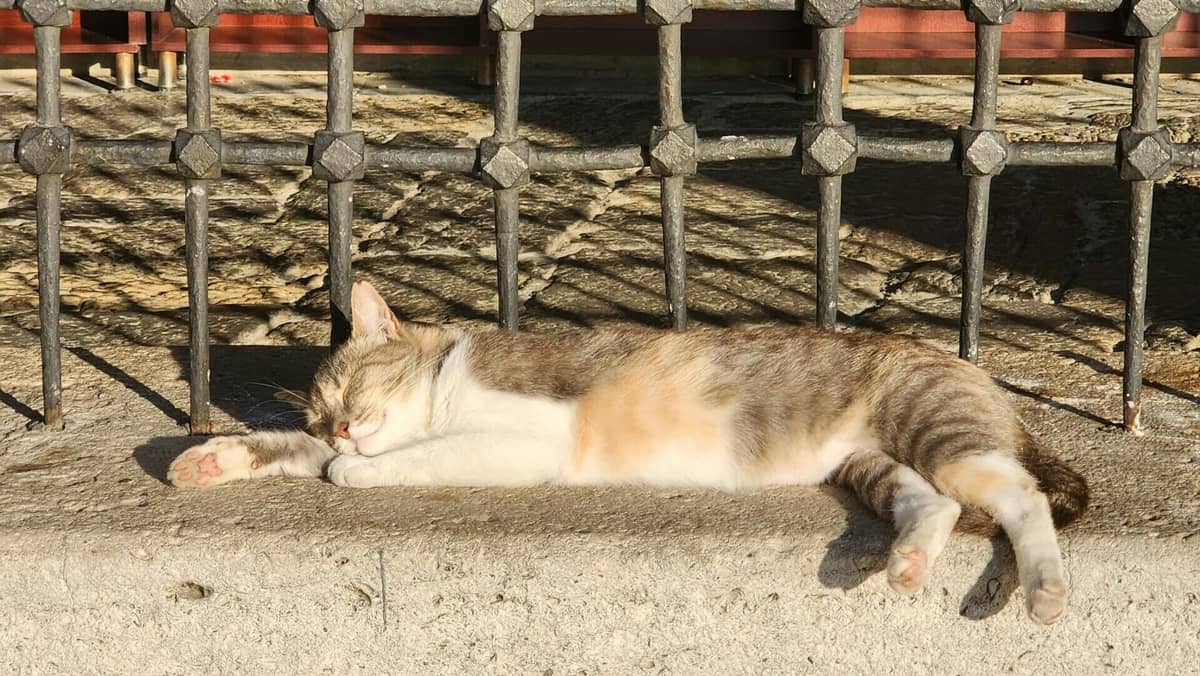Five years ago, trap-neuter-return (TNR) organization Cornwall Community Cats was formed in response to Cornwall Borough passing a ban on the feeding of feral cats. Since then, founder Jennifer Wentzel said, the organization has trapped over 900 cats.
As of April 2024, when the organization last compiled a report to present to Cornwall Borough Council, it had altered and released 468 cats and fostered 441 cats (mostly kittens) for adoption, most in Cornwall or West Cornwall.
Three years after its inception in 2019, Cornwall Community Cats requested (and obtained) an exemption in Cornwall’s no-feeding ordinance for TNR program participants in 2022.
Read More: Cornwall Borough Council unanimously amends ban on feeding feral cats [2022]
Referencing a 2019 Frontiers in Veterinary Science study that found TNR to be significantly more effective in reducing feral cat populations over time than other methods, Wentzel said that TNR works by preventing feral cat populations from increasing over time.
“You wanna reduce the free roaming cat population by trapping free roaming cats in a humane trap, you would spay or neuter them, you would tip the ear, you would vaccinate for rabies and distemper, and then the cat would be returned to the original location so it can live out the rest of its life and not reproduce,” Wentzel said.
TNR programs, she said, involve placing food in traps (ideally for short periods of time and not at night to avoid trapping other animals) and taking them to veterinarians to be spayed or neutered before releasing them into the same environment from which they were caught.
With an average gestational period of around 66 days, one unspayed female cat could have over five litters per year, with an average of four kittens per litter, according to the National Library of Medicine. Wentzel says it isn’t rare for her organization to investigate a newly reported feral cat colony to find 20 or more kittens.
When this happens, the kittens (if young enough to be socialized to humans) are brought to one of six foster homes partnered with Cornwall Community Cats, altered, provided shots and other treatment if necessary, and adopted out to a new (indoor) home.


Wentzel said estimating feral cat populations can be difficult, especially with the possibility of unreported colonies on farms or in trailer parks (which she urged residents to report to Cornwall Community Cats if known). However, she is confident the program has reduced population growth.
In some reported colonies (such as ones at Zinns Mill Road, Miner’s Village, and Mine Road), all known cats have been altered, the May report reflects.
Cornwall Borough also hasn’t received any complaints of feral cats “for quite some time,” borough manager Cody Rhoads said in an email Tuesday.
Since 2019, several other TNR initiatives have followed in Cornwall Community Cats’ wake. Lebanon County Community Cats, which started up January 2023, addresses cat colonies throughout the county. Wentzel also mentioned TNR efforts in Richland Township and South Lebanon.
Now, residents of North Lebanon Township are asking supervisors to permit TNR programs to address feral cat colonies there. Some residents strongly oppose the measure and seek stronger enforcement of feeding bans.
Read More: North Lebanon appoints resident Rick Blouch to Regional Police Commission
In North Lebanon, animal feeding is prosecuted based on Code 2-401 prohibiting residents to “own, possess, harbor or control any animal which engages in conduct constituting a nuisance.” Nuisances include “the dispensing of feces or urine and/or otherwise damaging shrubbery, trees or lawns.”
Supervisors have not yet taken action on these requests, but said that they would consider information provided to them by TNR proponent Ann Pinca at their August meeting.
The board also expressed concern with how a TNR-permissive amendment would be worded, and Pinca recommended it review Cornwall’s 2022 amendment.
When asked for words of advice to new TNR community programs, Wentzel emphasized the importance of relying on other TNR organizations like Nobody’s Cats for help and guidance.
“I think that our community, our different municipalities and groups are pretty helpful to each other,” she explained. “Just work to your strengths, because different volunteers are going to have different strengths in different areas.
“Definitely keep records of all the surgeries that are done so you have some basis to show what your activities have been,” added Wentzel.
Questions about this story? Suggestions for a future LebTown article? Reach our newsroom using this contact form and we’ll do our best to get back to you.

Keep local news strong.
Cancel anytime.
Monthly Subscription
🌟 Annual Subscription
- Still no paywall!
- Fewer ads
- Exclusive events and emails
- All monthly benefits
- Most popular option
- Make a bigger impact
Already a member? Log in here to hide these messages
Strong communities need someone keeping an eye on local institutions. LebTown holds leaders accountable, reports on decisions affecting your taxes and schools, and ensures transparency at every level. Support this work with a monthly or annual membership, or make a one-time contribution. Cancel anytime.
























